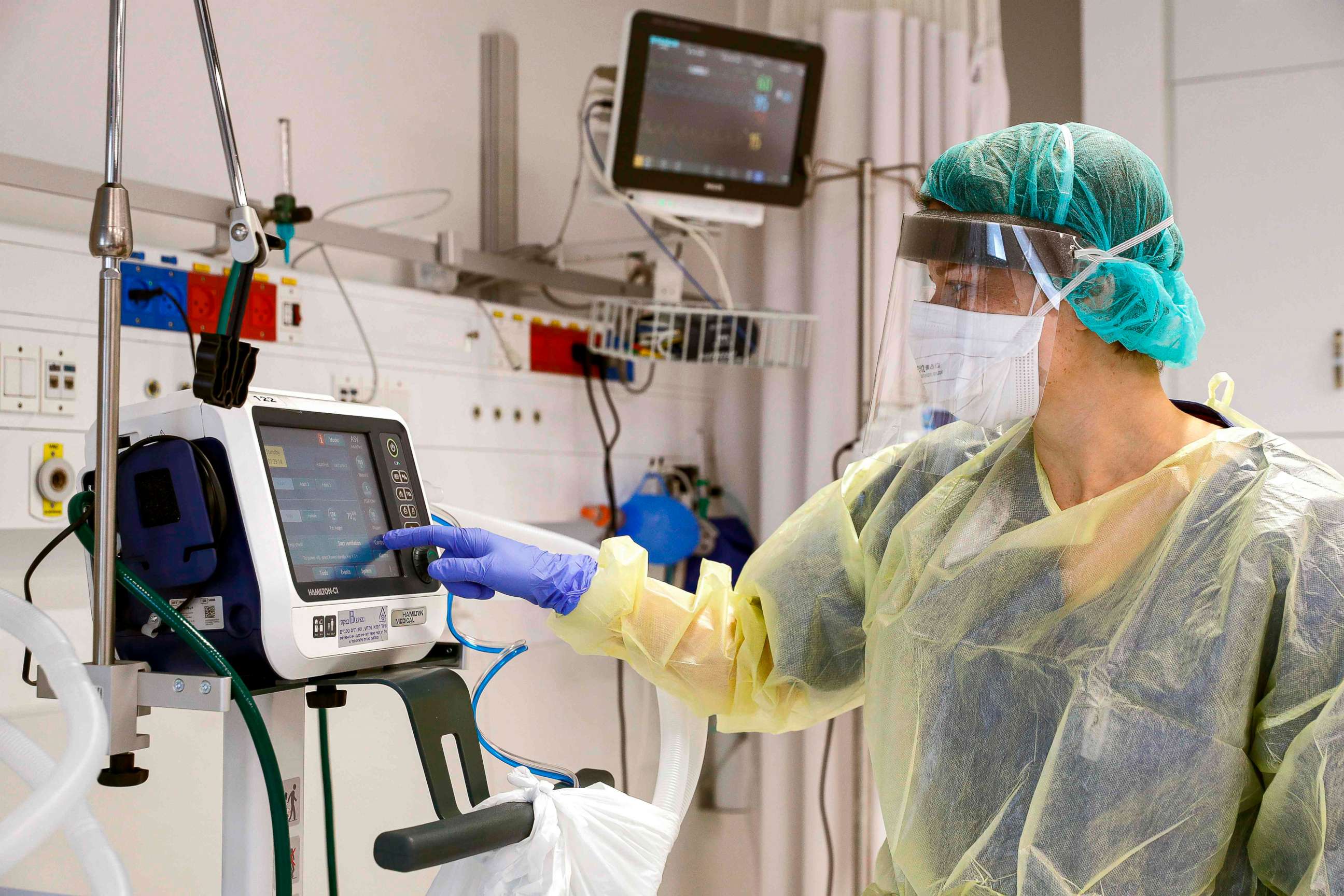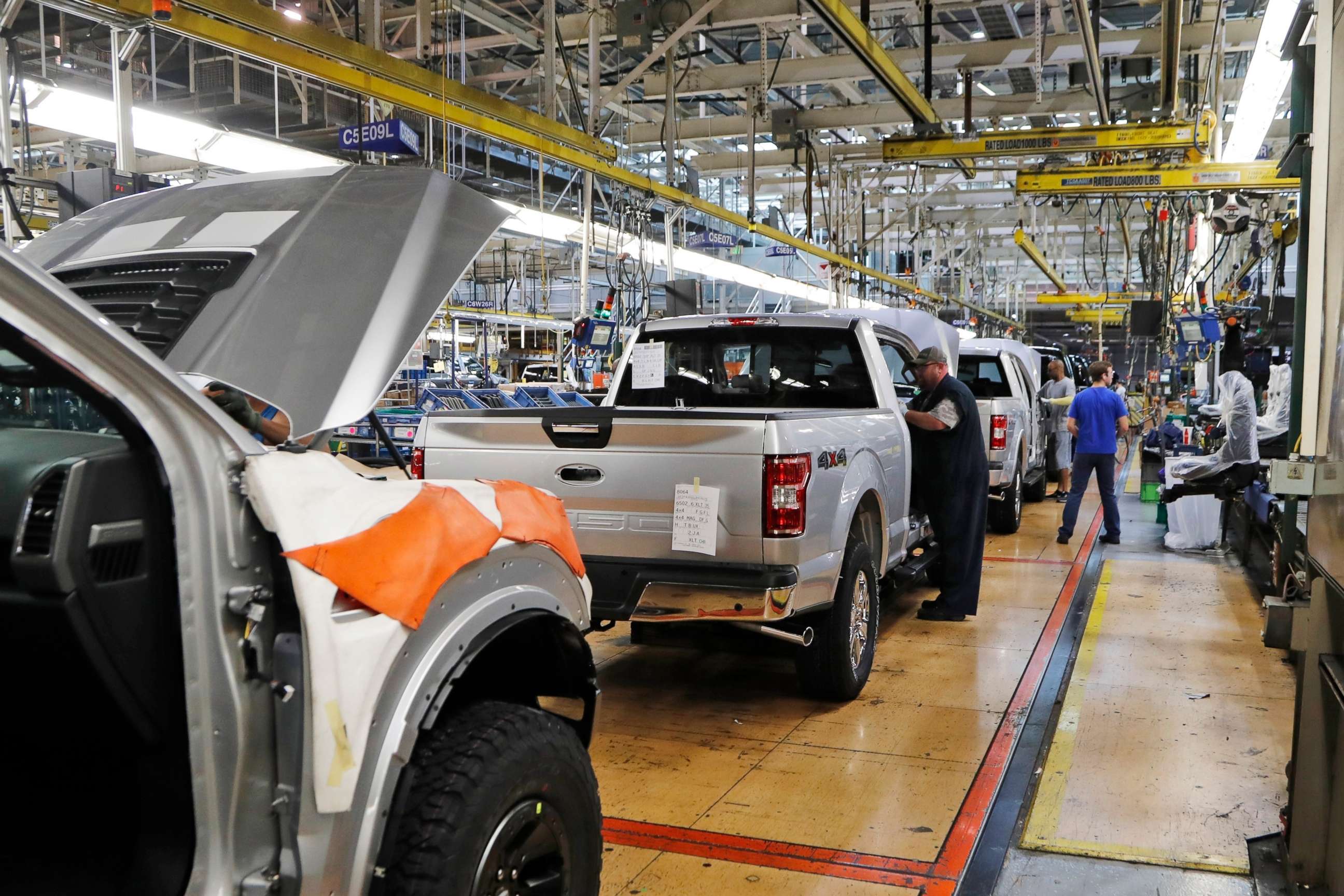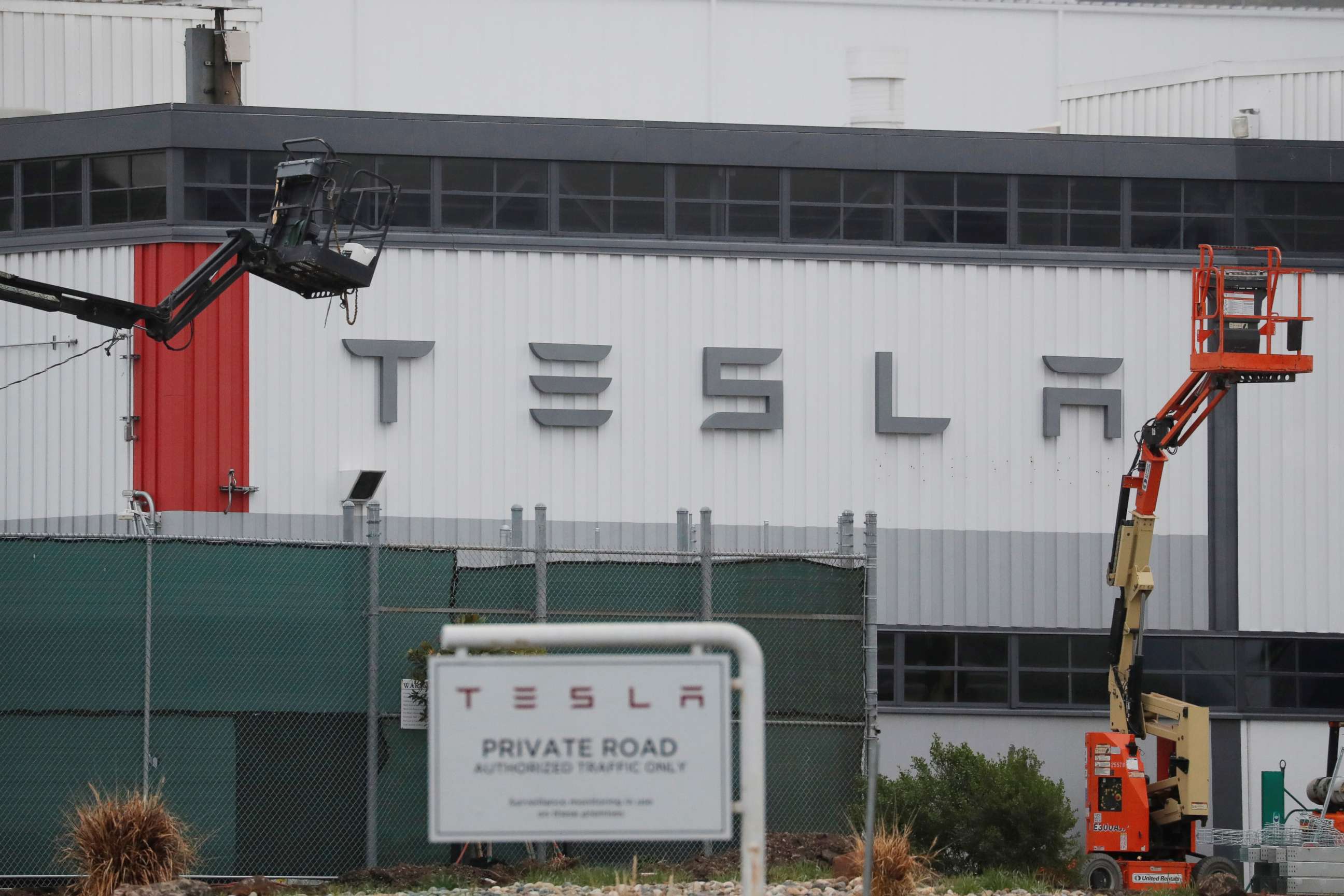Automakers offer to build ventilators as US faces critical shortage
"It’s vital that we all pull together to help the country."
Two U.S. automakers could soon reopen their idled factories and call back workers to manufacture what America desperately needs now: lifesaving ventilator machines.
As the number of confirmed novel coronavirus cases continues to increase exponentially around the globe, U.S. hospitals and health officials are warning government leaders that these machines are in short supply. Ventilators deliver air to one's lungs through a tube inserted into the trachea, or windpipe, and are critical to helping patients who have developed pneumonia from COVID-19.
The Society of Critical Care Medicine estimates that 960,000 coronavirus patients in the U.S. may need to be put on ventilators over the course of the outbreak, according to The Associated Press. But the nonprofit medical organization said the nation only has about 200,000 of these machines.

What to know about Coronavirus:
- How it started and how to protect yourself: Coronavirus explained
- What to do if you have symptoms: Coronavirus symptoms
- Tracking the spread in the US and Worldwide: Coronavirus map
General Motors CEO Mary Barra spoke to Trump administration officials Wednesday about how the Detroit automaker could offer its services as the coronavirus pandemic reaches new levels.
"She informed them that we would like to help during this crisis and that we are studying ways to help including studying capabilities to help support production of medical devices such as ventilators," a GM spokeswoman told ABC News.
Ford Motor Co. said it too stands ready to "help the administration in any way we can, including the possibility of producing ventilators and other equipment," the Dearborn, Michigan, carmaker said in a statement Wednesday. "We have had preliminary discussions with the U.S. government and are looking into the feasibility. It’s vital that we all pull together to help the country weather this crisis and come out the other side stronger than ever."

A spokesman for British supercar maker McLaren said a team would be formed "to see if these ventilators can be produced rapidly and relatively simply," Automotive News reported. McLaren's U.K. factory would not manufacture the ventilators; however, its engineers would provide design expertise, according to the company's plan.
"The McLaren Group has offered its expertise in innovation, design and engineering to the U.K. government and stands ready to lend its support to tackling the coronavirus challenge," a spokesman told ABC News on Saturday. "All this is still at early stage discussions and we’re waiting to understand the U.K. government’s requirements."
The Volkwagen Group on Friday said a task force was exploring if hospital ventilators could be produced with 3D printing. VW has 125 industrial printers and 25 years of experience with 3D printing.
"We have our own international task force that is already working intensively on this topic," a VW spokesman told ABC News. "Medical equipment is of course new to us but as soon as we know the requirements and receive the corresponding blueprint, we can start."
The German company, the largest automaker in the world in terms of sales, also said it would donate about 200,000 category FFP-2 and FFP-3 protective face masks for public health protection.
"Health protection takes priority — also beyond the factory gate," Volkswagen board member Gunnar Kilian said in a statement.
Jessica Caldwell, Edmunds' executive director of insight, said automakers have the resources, know-how and space available to build large quantities of these machines.
"They work in plastic and electronics and have material sourcing expertise," she told ABC News. "It's very reminiscent of World War II. Everyone had to pitch together and do different things they weren't accustomed to."
In 1941, the U.S. automotive industry ceased production of civilian vehicles in Detroit and started building Jeeps, M-5 tanks and B-24 bombers to assist in the WWII war effort after President Franklin D. Roosevelt made a "call to arm and support" the Allied powers in a December 1940 speech. By the summer of 1944, Ford’s Willow Run plant cranked out one bomber an hour, according to the Detroit Historical Society.
Elon Musk, CEO of electric carmaker Tesla and private aerospace manufacturer SpaceX, said he would direct his companies to produce ventilators if needed.
"We will make ventilators if there is a shortage," he tweeted Thursday. "Tesla makes cars with sophisticated hvac systems. SpaceX makes spacecraft with life support systems. Ventilators are not difficult, but cannot be produced instantly. Which hospitals have these shortages you speak of right now?"

A spokeswoman for Jaguar Land Rover told ABC News the British luxury carmaker has been "approached for help with the production of ventilators as part of ongoing discussions with government. Naturally, we will do whatever we can to support our communities during these unprecedented times."
U.K. Prime Minister Boris Johnson on Monday implored manufacturers, including carmakers, to produce ventilators and medical equipment at their factories, saying a national effort was required to reduce the spread of COVID-19. Businesses can get involved in the design, procurement, assembly, testing and shipping of ventilators, he added. The U.K. Department of Health and Social Care released a document Friday outlining the specifications for assembling a ventilator system. Rolls-Royce and Jaguar Land Rover have reportedly received blueprints.
Automakers across the globe have temporarily suspended production for the safety of workers as the coronavirus has sickened more than 265,000 people worldwide. GM, Ford, Ferrari, Porsche, Jaguar Land Rover, Bentley, Rolls-Royce, Lamborghini, Fiat Chrysler, Toyota, BMW and Honda have all announced closures at some or all of their facilities.




